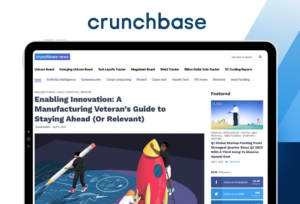Why Do ERP Projects Fail? Top Causes and Solutions

The process of finding, implementing, and optimizing your ERP is exciting. But before you’ll start to see the benefits, it’s important to understand upfront what you need from and hope to get out of your ERP, so you can avoid problems down the road.
We’ve addressed some of the most common factors that lead to ERP failures, and how to avoid them. With the right planning, research, and some help from the experts, you’ll be able to increase the success, productivity, and morale of your organization.
Understanding What ERP You Need, and Why
You’ve heard that an enterprise resource planning system can be transformative for your business. That’s a great start. First, you need to know what you’re looking for in an ERP and how specific features will impact your organization, however, or you can expect to be bogged down by distractions and details.
Start by outlining your organization’s primary goals. Examples of these might be speeding up the time it takes to bring products to market or automating more workflows. When researching ERPs, consider which features will help you achieve each objective. (And we have consultants on standby who specializes in these systems to help you if you’re unsure.)
Implementation Problems
The common challenges of ERP implementation include technical issues, as well as getting your employees and stakeholders on board. A strategic and thoughtful plan for implementing your ERP will help you avoid the common issues and experience a seamless transition.
Data Issues
Moving your old data to your new system is a vital part of any ERP project. And this is a well-known area where problems are likely to occur. Even the best ERP won’t change the quality of your data. Make sure all of your data is as clean and accurate as possible before migrating. This is also an excellent time to delete old, redundant, or unnecessary data.
Lack of Training
If you haven’t trained your staff to operate the ERP to its fullest potential, the project may be on track for disaster.
Train your workforce early and often with a structured approach. These are not skills people should be expected to pick up on their own, given how important an ERP is to your organization’s success. Be sure that your organization has planned for the cost of hiring a trainer or expert to ensure essential information is passed on to your employees.
You’ll also want to plan for ongoing training, as well as for staff transitions and onboarding, to ensure that everyone maintains up-to-date working knowledge, especially as you make changes or hire new people.
For your best chances of overcoming all of these challenges and more, work with the pros. The Decision Resources team has the expertise and experience to ensure your ERP project is a success at every stage. Find out more using our online contact form, call 412-562-9660, or email us at info@decision.com to get started today.
Similar Blogs

Decision Resources Featured on Crunchbase

Chips, drugs, and steel — how to prepare for Trump tariffs





